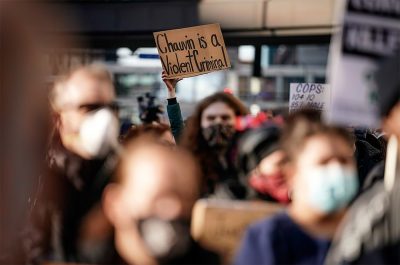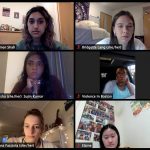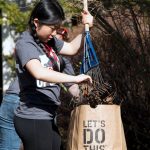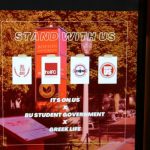
Boston University President Robert Brown and Dean of Students Kenneth Elmore issued emailed statements to students regarding the trial of Derek Chauvin, which reached a guilty verdict on all charges Tuesday.
Chauvin, a former Minneapolis police officer, was convicted on charges of murder and manslaughter in the killing of George Floyd on Memorial Day last year, which prompted global protests against racism and police brutality.
Brown wrote in his email — sent out Monday, prior to the following day’s verdict — he hoped for two outcomes to result from the jury’s decision.
“The first, a just verdict,” he wrote, “and second, whatever the verdict, a peaceful assembly to let the world know what we think about it—and everything it represents.”
Brown wrote the trial on its own should be considered a step toward justice as opposed to a resolution.
“In my mind, the case against Mr. Chauvin cannot be an end in and of itself,” Brown wrote. “It must represent a step forward in an antiracist journey that has as its destination a place where Black people need not fear for their lives when officers approach.”
Elmore’s email, sent to all students Tuesday after the guilty verdict was reached, recounted his anger following the 1992 acquittal of four police officers who assaulted Rodney King, a Black man, in Los Angeles.
“Twenty-nine years later,” he wrote, “I still struggle to be less anxious; less fearful, and more hopeful in these moments.”
Elmore’s email invited students to gather and share their opinions and feelings at virtual and in-person events facilitated by the Howard Thurman Center for Common Ground.
“Some people need to find space that’s more counseling-oriented,” Elmore said in an interview. “Others need to pray. Others need to engage their activism. And then other folks are fairly indifferent, they just say, ‘Look, I just need to get a little rest from it all.’”
The HTC hosted a Coffee and Conversation event Friday via Zoom to discuss the outcome of the trial. BU will also facilitate in-person conversations Wednesday at the George Sherman Union Dean’s Lounge and Thursday at the GSU Terrace.
Additionally, the HTC will host a virtual conversation Wednesday at 4:30 p.m. on Zoom with Ibram X. Kendi, founder and director of BU’s Center for Antiracist Research.
“Hopefully, in that message that I sent out, it gives people a variety of options for themselves,” Elmore said. “I’m thinking about the individuals who are out there who need to figure out the best way for themselves in terms of a response.”
The University will also hold a virtual morning “daily reflection,” which started Friday and will run Monday through Friday until May 7. The reflections will last nine minutes and 29 seconds — the amount of time Chauvin’s knee was on Floyd’s neck.
“We’re all struggling to find meaning for what this verdict is about,” Elmore said. “We’re also debating what the meaning is. And we’re also fighting about what that meaning is.”
Tyler Alstede, a junior in the College of Engineering, said he thought providing opportunities for discussion was a positive decision.
“Anything to spark conversation between people is always useful, especially in an environment like this,” he said. “I think it should have been a good way to foster some conversation.”
ENG freshman Ella Cicone said while she initially thought the University’s decision to send emails about current events was “weird,” she feels it is an important issue to address.
“It’s definitely good, because racism and all this stuff, it really does affect us,” she said. “They should be doing whatever they can to make us feel heard and safe.”
Elmore cited his desire for people to treat others kindly following the challenges presented by the trial.
“I just hope folks extend grace to themselves and to each other,” Elmore said. “This is a time for that.”














